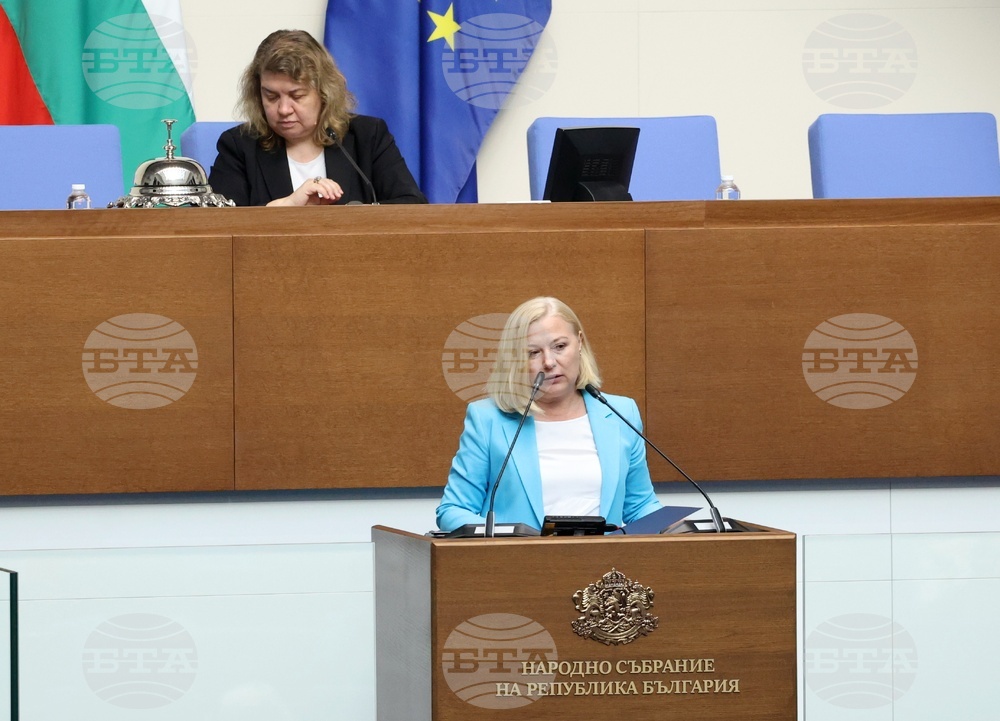site.btaUPDATED CC-DB to Use No-Confidence Vote as "Institutional Response to State Capture"


At the start of this parliamentary session, Continue the Change – Democratic Bulgaria (CC-DB) will make use of a constitutional tool — the no-confidence vote — as its "institutional response to state capture and the compromised institutions", Nadejda Iordanova said in the plenary hall as she read out a declaration on behalf of her parliamentary group, marking the beginning of the autumn session of the National Assembly.
"Through the vote of no confidence, we will expose in detail the network of dependencies and convince citizens that the state can belong to them — and that an alternative exists. Its core lies in the power of the rule of law, security, a modern vision for development and prosperity based on competition and clear rules. What the development of a modern Bulgaria means is a rule of law within the framework of Bulgaria’s European path," Iordanova added.
She said that the new parliamentary session begins in a country where regulators, ministries, the Interior Ministry, the prosecution service, and other institutions have been captured both in terms of staffing and legal framework. In her words, private interests — and more specifically “the wishes and commands of a corpulent player on whom today’s government relies — are being executed without fail through the captured institutions.”
The "corpulent figure" was clearly a reference to MRF - New Beginning leader Delyan Peevski.
"This government is increasingly taking on the characteristics of a regime of institutional capture and is harmful to the country. A manual could be written on what a captured state looks like, based on the daily examples given to us by the Borisov–Peevski tandem,” she added. “One driven by fear and the absence of will for reform, and the other — by greed for power and a turbo-populist leftist instinct.”
"Borissov" is GERB leader and former Prime Minister Boyko Borissov.
"The ruling majority does not solve problems — it swiftly appoints loyalists," she said. According to her, the result is long-term control over public resources for private interests.
"The only governing programme being implemented in the 51st National Assembly is that long-term power is being cemented through rapid-fire appointments in regulators with personnel whose independence and competence are publicly contested," Iordanova said. The result, in her view, is sustained control over public resources in the name of private interests, while society finds itself in a series of severe crises. “Sources of the severe crisis, such as the one with the water supply, are chronic corruption and theft, populism and incompetence — and corruption and crises cannot be extinguished with PR. GERB, from a mandate-holder, have turned into a mediocre PR agency for the ‘new beginning’. What we see is helplessness and dependence, a lack of vision for long-term modernization and reform. Extraordinary committee meetings are being convened, and legislation is passed while responsibilities of the executive are shifted onto Parliament. Instead of implementing the recommendations from the report of the temporary committee we initiated in relation to the water crisis and seeking resources for the proposed measures, a quarter of a million people are living under water rationing,” Iordanova said.
“New debt is being taken on again to feed the generous, beloved piggy bank called the Bulgarian Development Bank, to channel money through it to 'the right companies' in the circles of Peevski and Borisov,” Iordanova continued, adding that everyone remembers how, under GERB, one billion leva went to eight companies through the same scheme.
“Instead of a predictable and expert-led transition to the euro, Bulgarian society is receiving legislation for extraordinary administrative control, punitive regimes, and a state fist over business — a form of coercion that undermines trust in institutions, blocks investment, and passes the cost onto the citizens. Bulgarian businesses are writing manuals on how to defend themselves when captured institutions attack them,” Iordanova said.
/NF/
Additional
news.modal.image.header
news.modal.image.text
news.modal.download.header
news.modal.download.text
news.modal.header
news.modal.text













































